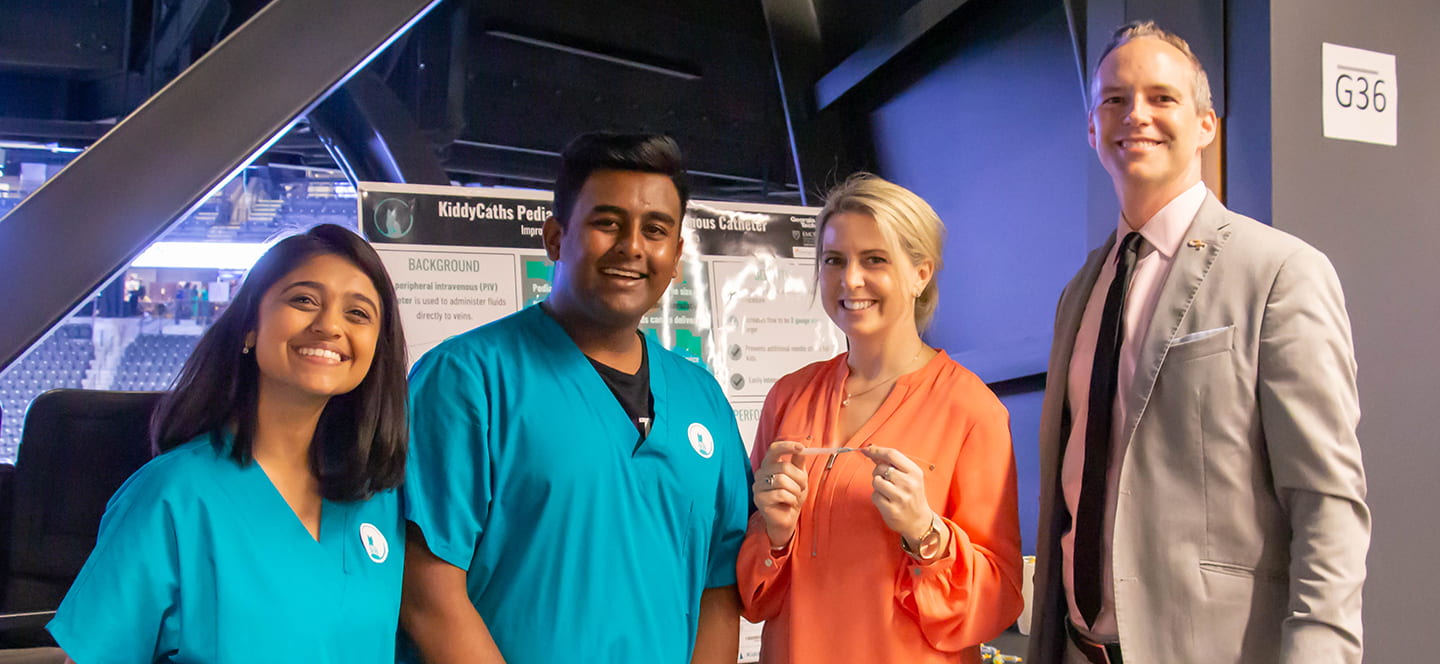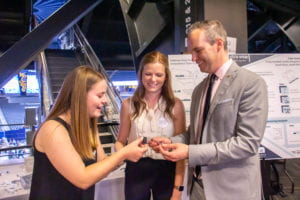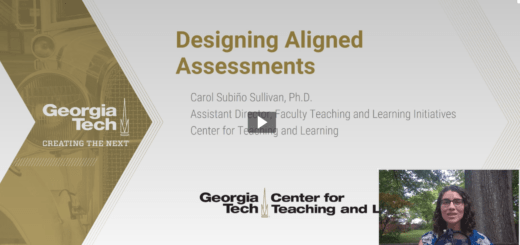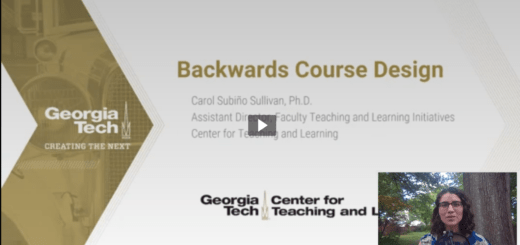Preparing Students for future careers in Biomedical Engineering: James Rains

by Camryn Burke, Class of 2022
(See more of Camryn’s work on the blog!)
Under the leadership of Dr. James Rains, Georgia Tech’s BME Capstone has been ranked the third best in the country. Six years ago, Dr. Rains was working in the biomedical industry developing new medical devices when he was given the opportunity to become an instructor at Georgia Tech. As a graduate of the university, he was excited about the possibility of using his many years of professional experience in the biomedical field to help prepare students for future careers in this industry.
“I was given a platform to teach students all the stuff I wished I had learned when I was in school,” Rains says. He wanted to use his experience in the field to focus less on the theoretical aspects of biomedical engineering and more on the aspects applicable to the real world. Since his start, he has helped the BME Capstone to acquire more healthcare collaborators than any other program in the nation, including Georgia Tech’s most recent partnership with the Mayo Clinic, one of the biggest clinics in the country.
Dr. Rains is also a mentor for CREATE-X, a program that helps students launch their own startups. He’d been greatly interested in startups as a Tech student, but there were no programs offered to help him pursue this interest. The chance to guide students through the process of becoming an entrepreneur was one he could not refuse.
Encouraging Diversity in BME
Dr. James Rains teaches nearly 600 students every year, from a variety of demographics. BME is one of the most diverse programs at Georgia Tech: nearly 50% of students in BME are minorities and it is the only major within the College of Engineering that is predominantly comprised of women (Archival Fact Book of 2018). Rains believes it is important to promote diversity in the biomedical industry. He does a lot of local and global outreach to find a more diverse range of partners that can help Tech students to address a wider variety of problems in their field in a way that applies to diverse groups of people.
He is currently working to establish a BME partnership with Morehouse Medical School. Morehouse is a well-respected, Historically Black College/University. Despite the fact it is only a few miles away from the Georgia Tech campus, this would be the first time that BME has engaged in this type of partnership with Morehouse Medical School. 
Classroom Strategies
Rain’s BME Capstone is structured very similarly to a job in the industry; students are given real-world problems that are occurring in their field and work on ideas that can help alleviate or fix the problem. This encourages them to be innovative and gives them the chance to explore the aspects of biomedical engineering they are most interested in, while still receiving the guidance of professors with significant industry experience. As Rains states, “We’re giving them a road map, but it is their responsibility to experience and create something and along the way to really dive into the knowledge.”
Students simultaneously collect research for their capstone project and work on communication skills. Both are essential skills to learn, as they must have a deep enough understanding of content to hold in-class discussions on their project do presentations about their project idea, and answer questions. The course structure gives students hands-on work that is applicable to the real world. The structure also allows them to interact with peers in a way that encourages the development of their presentation skills and helps them get feedback on their work.
Connecting Course to Career
It is impossible to not get exposed to the different avenues within biomedical engineering in Dr. Rains’ course. BME is a field with a wide variety of research and career paths that are intrinsically connected to one another in some form. This allows students to further explore their research and potential career interests. While they work on their respective projects, students gain exposure to the varying aspects of inventing something new and to the biomedical field overall.
A student may think that they’re interested in pursuing one path but could find that they are interested in another. BME Capstone gives them the opportunity to consider all possible avenues of interests in the field. “Over the whole arc of a project, students get to try on so many different hats and learn so much about the different roles and paths someone in their field can take,” says Rains.
Not only does this allow students to get exposure to the different facets of BME, but it also allows Dr. Rains to get to know their strengths and recommend companies that would leverage these strengths. He uses his connections to help firms identify good candidates for job openings or helps firms reevaluate students who weren’t given as much opportunity to display their skill set at the Career Expo.
Since his start at Georgia Tech, Dr. Rains has been a great asset to the Wallace H. Coulter Department of Biomedical Engineering. He is enthusiastic about helping his students succeed and uses his field experience to help students understand and build their networks in the biomedical industry. He intends to continue guiding the next generation of biomedical engineers into the work force through his mentorship both in and out of the classroom, helping students to explore their field, make important career connections, and even launch start-ups. “Everyone has an opportunity to create something that will impact the world, and I think the best part of my job is getting to guide them in these projects.”




